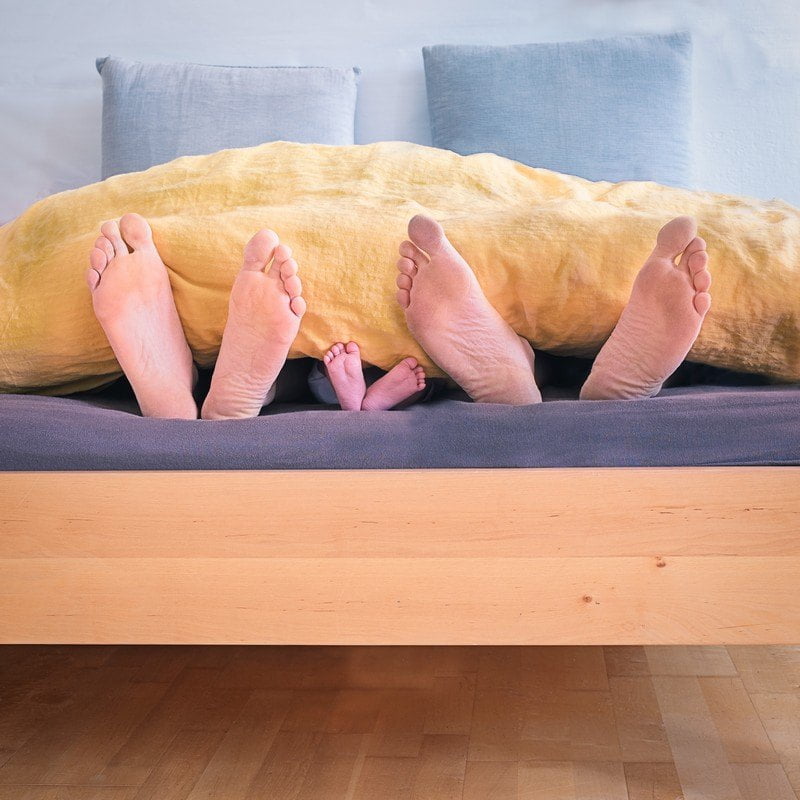02 Jun Are bunions inherited?
Are bunions inherited?
There are plenty of traits that we inherit from our parents that we may not be particularly thrilled about in some instances. In this article we take a look at whether your genetics give you a predisposition to developing bunions. We explore the rates of bunions, whether your family history make you more prone to getting a bunion and what to do if there is a history of bunions in your family.
Does your family history make you more prone to getting bunions?
The answer is yes and no.
We find this is a hot topic in our clinics given that we treat a number of parents with bunions who are very interested to know if their children will also have issues with bunions in the future.
The reality is that if your mother or father has a bunion you will be more prone to developing one yourself. However, it’s not the bunion itself that is hereditary, it’s the traits that are inherited that lead to a bunion.
Inherited traits such as the way you stand and the way that you walk are generally due to a similarity in the shape and structure of your parent’s feet that has been passed down to you. A bunion is simply a secondary trait that tends to occur after a period of time of walking or standing a certain way. The difficulty is that these issues can usually start from around the age of 12 (however we have seen this as early as 8 in some girls) anywhere to 50 so when this takes effect, and you become more prone to bunions, can vary greatly.

How can I manage a bunion?
The good news is that you can significantly influence a bunion and its development, so if bunions do run in your family, there are some things you can do to help.
Generally speaking, the longer a bunion is left the harder it is to treat via conservative care, the key is to try to get on to it as early as possible. There are number of things you can look at doing so that you can limit the progress of your bunion.
- Don’t wear shoes that are too tight at the toe box or around the big toe. A recent study in the UK suggests that wearing shoes that are too tight will accelerate a bunion significantly so if in doubt try to go a little wider around the toes. Keep in mind you don’t have to give up stylish shoes, if fashionable shoes are just a little tight get them stretched. A boot maker can do this, and it makes a huge difference and really open up your footwear options. The great news is it only cost about $15 for a pair.
- Keep an eye on your big toe! If you notice any changes to your big toe/ potential bunion then I would strongly suggest you get an opinion from someone who specialises in this area. The sooner you treat this condition the better the long-term outcome and, in most cases, you can avoid painful expensive bunion surgery.
- If you do have bunions in the family get your feet checked. The advantage of this is that the podiatrist who assesses you will be able to give you advice or a treatment plan to address the problem if they feel it’s indicated. Keep in mind, bunions are caused by a level of misalignment, which leads to compensation through the big toe joint. It may be worthwhile to address this misalignment and avoid an acceleration of the bunion before it becomes too serious.
Is my only option surgery?
The short answer is no. In most cases surgery only needs to be considered in the most advanced cases. The majority of the bunions we see don’t ever need to consider surgery. In fact, one very well-known surgeon in our area says to his patients ‘Come back and see me when you can’t walk’ meaning we only operate when you are in crippling pain.
What is the treatment?
If there is a level of misalignment in your feet, we use a treatment known as Foot Mobilisation Therapy (FMT). FMT is a gentle hands-on approach which improves the function of the foot and ankle. We then combine this with strengthening exercises to support this position.
How do I go about getting my bunion checked by a podiatrist specialising in this area?
At Sydney Bunion Clinic almost 65% of our patients attend our clinic in relation to a bunion. Be aware most podiatrists don’t treat bunions as they don’t have a lot of experience in this area. We have over 19 years worth experience in this area with great results.
We offer an initial bunion assessment where we run through a series of examination and evaluation to determine the cause and condition of your bunion and come up with a plan to minimise any long-term progression and avoid surgery. We do not have to limit your activity; you don’t have to wear orthotics and you can keep wearing whatever shoes you like.
Our Bunion Treatment Process
At Sydney Bunion Clinic, Foot Mobilisation Therapy is our favourite method and we have successfully treated thousands of patients, helping them avoid bunion surgery.
Your Bunion Assessment Includes:
- Initial consultation
- Biomechanical Examination
- Gait Analysis
- Foot Mobilisation Therapy Evaluation
- Diagnosis and Explanation of the underlying cause of your bunion
- A Personalised Treatment Plan
To book your initial bunion assessment, or to find out more on our bunion treatment options contact us on 8966 9300. Ready to get started? Book an assessment online today! We have a 65% off initial assessment offer which brings the cost of your assessment to just $35, claimable on your private health insurance.
Tags: Bunion Treatment Sydney

New Patient Bunion Assessment
Only $35* Usually $100
*Claimable on your private health insurance

Sorry, the comment form is closed at this time.